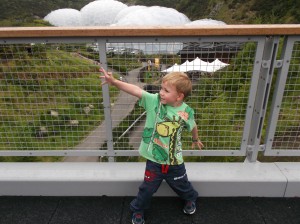It’s a couple of months since I posted about my depression and I’ve since been to see my doctor and started on anti-depressants. I’m a different person to the one I was a few months ago; I’m cooking, looking after my house and my kids, starting the first module of an Open University degree and even taking small steps to get back into writing and revising the novel draft I finished earlier this year.
I hadn’t realised until looking back over the past few months, years, whatever, how much of my life was lost to depression. Now that I’m getting my life back I think how lucky I am and how important it is that anyone who is worrying about depression gets some help. Anti-depressant medication won’t help everyone, or it might but only after much experimentation to see what suits you personally, but it has to be worth a shot.
Anyway, there are some small things I’ve found that help lift me, even with the drugs, when I feel that dark tug.
- Music. Make a playlist and put on your ipod, burn it to a CD, whatever. Make a couple, actually; one should be a wallowing CD, where you feel free to just feel miserable. IMHO this should be saved for certain occasions like where those blasted hormones add their tuppence’orth to the slurry pit of life. The main one should be any and all music that gets you singing along or dancing in the kitchen or nodding like the Churchill dog, whatever eclectic mix it ends up as. One of my mood CDs has some Breton folk music, the 1812 Overture and Christina Aguilera’s Beautiful all on the same CD and I love it. FYI, Queen are generally a good bet. Can anyone resist doing a Wayne’s World to Bohemian Rhapsody?
- Find a ‘hand hobby’. Mine is baking (Marian Keyes’ book is an excellent place to start), yours could be gardening, knitting, woodcarving. Something traditional and satisfying, that really uses your hands. For all though there’s something soothing about using your hands and sort of getting back to basics, I’ve heard too that actually stimulating the nerves in your hands produces happy hormones. Sounds good to me? Also, it’s very stress-relieving to knead the bejeebus out of bread dough or chop carrots with venom. Better the carrots than the husband, if you ask me.
- Light a candle. Yes, even in summer. The dancing light of the flame is hypnotising and soothing, and the scent should be one that makes you happy. Spend time, AGES in fact, browsing a good selection of scented candles to find one you like and remember that smell is quite a personal thing, with a scent that one person loves doing absolutely nothing for someone else. I have a Yankee Candles Black Cherry one that I love. It’s a very happy scent, fruity and sweet and ever so slightly decadent-dressed-up-as-wholesome.
- Get into nature. Gardening, as I said above, is fabulous although I’m no-one to talk since I’m generally acknowledged among the family as the Kiss of Death to plants. But I hear it’s very good for you and the time I do spend in the garden I feel peaceful and satisfied. Sally Brampton in her book Shoot the Damn Dog is a wonderful advocate of gardening. Plus you’ll be saving the planet and that’s a great thing for giving a teeny boost to your sense of self-worth. There’s also going for a wander in some greenery, going to the beach and running sand and/or water through your fingers or going to the top of a windy, exposed hill like in the Dales and letting the elements hit you. Even better if it’s raining, but try to have someone standing by in the car with a flask of tea and a towel and a hug. I love the feel of rain on me, it really reminds me I’m alive which is far too easy a thing to forget.
- Explore alternative remedies. I’m a great believer in aromatherapy and western herbalism, and I hear loads about the power of meditation and mindfulness. Close your eyes in the middle of a depressive spell and spend five minutes breathing deeply and listening. If there’s running water nearby that’s a bonus but it would be good if you weren’t distracted by needing a wee in the middle of connecting with your inner self.
These help me, but won’t all work for everyone. The important thing is to find what does work for you in my opinion. Some people find writing during depression extremely therapeutic; I couldn’t face a pen and am having to ease myself back in. And all of these are self-help tricks, not cures. No substitute for going to a trusted doctor and talking through how you feel. Most importantly, acknowledging to first yourself, then your closest family, that there’s a problem is absolutely essential and can take ages. I’ve had a problem for years but didn’t acknowledge it till last year, and even then it took months to come to terms with properly and even longer to ask for help in the form of medication. The important thing is to give yourself permission to feel how you do then you can start to look after yourself.
Now I’m off to pummel some bread dough.


 Rules
Rules